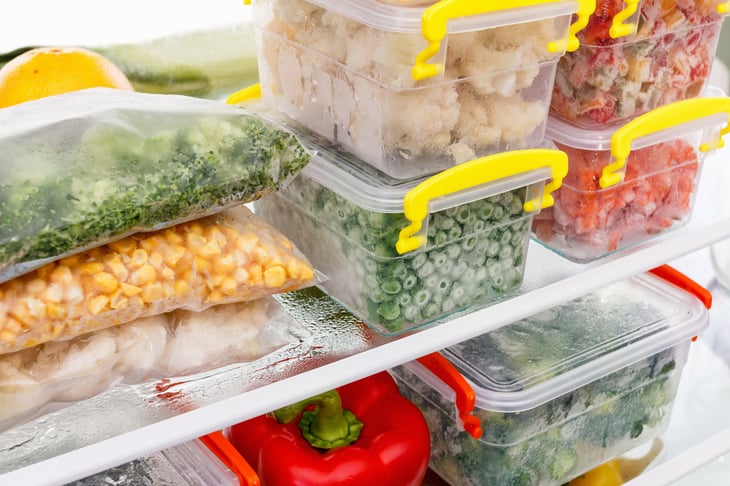
Frugality isn’t a monolithic concept. It’s more of a continuum, with different approaches for different people. You can be frugal even if you don’t sew all your own clothes, grow most of your food, make all your gifts and create all your own entertainment.
Frugal people can — and do! — eat in restaurants, buy vehicles, take vacations, pay for streaming services and splurge on things they really want. They just do it carefully.
My own frugal mantra is this: “I save where I can so I can spend where I want.” Along with my frugal brethren, I make informed choices about my money and my life.
Here are some of the things that smart frugal people never do.
1. Pay retail

Why would you want to pay the first price offered? Instead, frugal people use apps and browser extensions like Capital One Shopping or Honey, which unveil great deals you might never discover on your own. Seriously, check them out.
Frugal people also avail themselves of post-holiday and clearance sales. They visit thrift stores and garage sales. The lucky ones are able to find just what they need in their local Buy Nothing Facebook groups, which means they’re not paying at all.
2. Ignore cash-back shopping/rewards apps

You can save a ton on the things you need with rewards credit cards, cash-back programs like Rakuten and shopping apps like Fetch Rewards and Ibotta. The savings may come in the form of rebates or in points you can trade in for gift cards or cash.
Learn more at “9 Best Shopping Apps to Save Money” and “7 Apps I Use to Beat Inflation at the Grocery Store.”
3. Carry a credit card balance

A persistent rumor is that carrying a credit card balance improves your credit score. It. Does. NOT. According to the Experian credit bureau:
“Outstanding balances on credit cards can even hurt your credit score, and this effect is most drastic once balances exceed about 30% of a card’s borrowing limit. Those with the highest credit scores tend to keep credit utilization below 10%. Maintaining a zero balance by paying off all purchases in full each month is best of all.”
Carrying a balance means you’re paying unnecessary interest (really, why?) and may indicate you’re living beyond your means. A budgeting service like You Need A Budget could help you get your spending on track.
4. Ignore their health

Would you ignore that scary sound under the hood or would you take the car to a mechanic? The same rule applies to your body.
An annual wellness exam can catch a small problem before it becomes huge. For example, suppose that stomachache you keep ignoring is a gall bladder problem; if diet change doesn’t work, then outpatient laparoscopic surgery may take care of things.
Or you could keep ignoring it, which might well lead to invasive emergency surgery and a hospital stay. Your call.
5. Spend their whole paycheck

You should aim to live below your means, not at them. Spending your entire paycheck means you have no savings. How will you cover the next emergency, let alone save for the future? Talk about your zero-sum game.
Whether you’re spending carelessly or simply not earning enough, you need a plan. Look for a qualified financial adviser to help you get control of your cash.
6. Use buy now, pay later

Buy now, pay later services — commonly referred to as BNPL — let you split the cost of a purchase into several payments. According to the Consumer Financial Protection Bureau, a common plan is four interest-free biweekly payments.
This could be a lifesaver in rare circumstances, such as “teen grows out of shoes before single parent has a chance to save enough money to pay cash.” Yet, this approach could lead that parent to buy only at retailers that use BNPL rather than shop around for the best deal. What’s more, returns can be complicated, according to the CFPB, and you may not have the same dispute protection you’d get with a credit card.
Most important, though: BNPL plans help you develop an instant-gratification habit. Instead, adopt the smart frugal habit of skipping BNPL plans and sticking to your budget.
7. Waste food

Grocery prices have soared, with the cost of food rising 10.4% from December 2021 to December 2022, according to the Bureau of Labor Statistics. The prices of some staples has gone up even higher, with eggs costing nearly 60% more at the end of 2022 as they did a year earlier.
Wasting food was never a good idea. Recent price jumps make food waste an even dumber idea. For tips on getting the most for your dollar and avoiding waste, see:
8. Pay bills late

On-time bill payment is the single biggest factor that determines your credit score. If a bill is more than 30 days late, your score will take a hit. A bill that’s only a few days late probably won’t affect your score, but you’ll have to pay a late fee.
Don’t let either of those things happen. Automate your bill paying! If you must do it manually, set up a foolproof routine for making those payments on time.
9. Grocery shop without a list

Wandering into a supermarket without a clear plan is like opening your wallet in a hurricane: Maybe the money will stay there – but maybe it won’t. You might come home with more things than you planned to buy and less money in your pocket.
Fortunately, there’s an easy two-part fix: Before you shop, make a weekly menu. Write down what you need to buy to make those meals.
Now for the tough part: Stick to that list. Yep, the store bakery’s fresh chocolate chip cookies DO smell amazing. Hold your breath and keep walking. Your budget will thank you.
10. Toss something that can be repaired, reused or sold

Frugal people don’t automatically throw things away or put them out on the curb. They get creative – and sometimes they even get paid.
The 3G Android phone that no longer meets your needs could be someone else’s lifeline. A couple of videos or DIY articles will help you tune up that balky weed-whacker. Once you finish a Costco-sized jug of pickles, use the container to store dry foods instead of buying expensive storage jars.
You might even be able to make some money at this, especially on electronics or good-quality clothing. For more on how to do this, see “6 Easy Ways to Buy, Sell, Get and Give Stuff Away Online.”
11. Let insurance renew automatically

After all, your insurance agent would never overcharge you. You can trust them, right?
Trust, but verify. Using an app like The Zebra means you’ll be getting quotes from major insurers all over the country. Here’s the beauty part: Someone else is doing the legwork.
12. Window-shop, online or off

Are you the kind of person who shops when bored? Get yourself a hobby that doesn’t cost a fortune.
It’s far too easy to be tempted by a clearance rack in a brick-and-mortar store or a glitzy home page that promises the Lowest! Prices! Ever!
If you don’t need something, stay out of the stores.
13. Keep up with the Joneses

The Joneses may be living what looks like their best life, but appearances can be deceiving. They might be up to their hairlines in debt, one jump ahead of the repo man and unable to sleep at night because they’re so stressed.
Some fun, huh?
There’s nothing wrong with wanting some of what the Joneses have – just make sure it’s what you really want. Create a plan to get there, appreciate what you already have and stop counting other people’s money.
